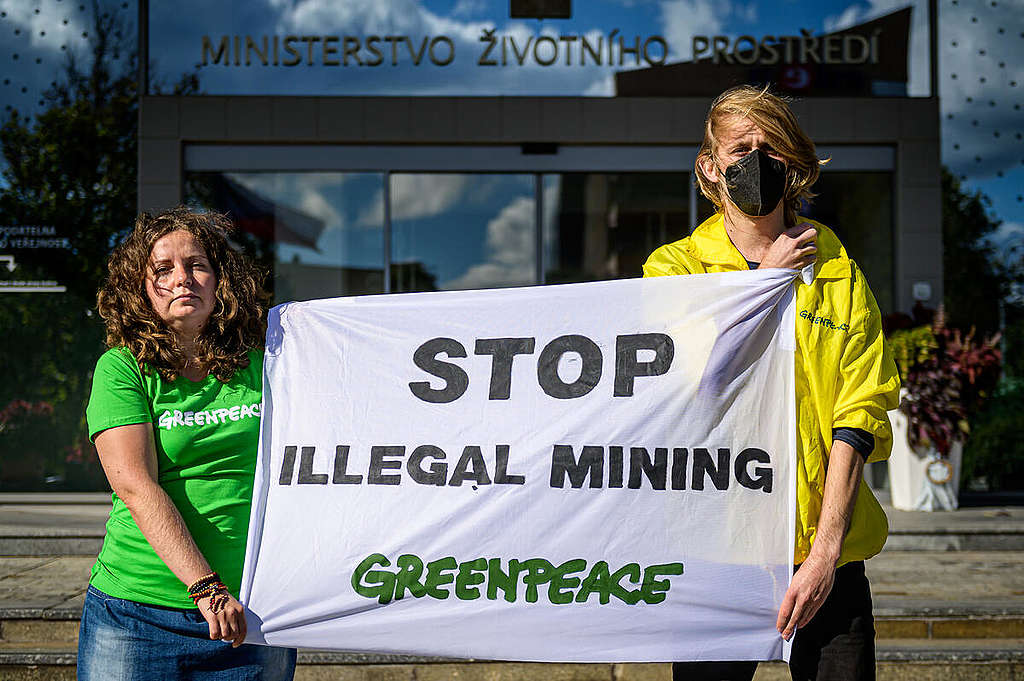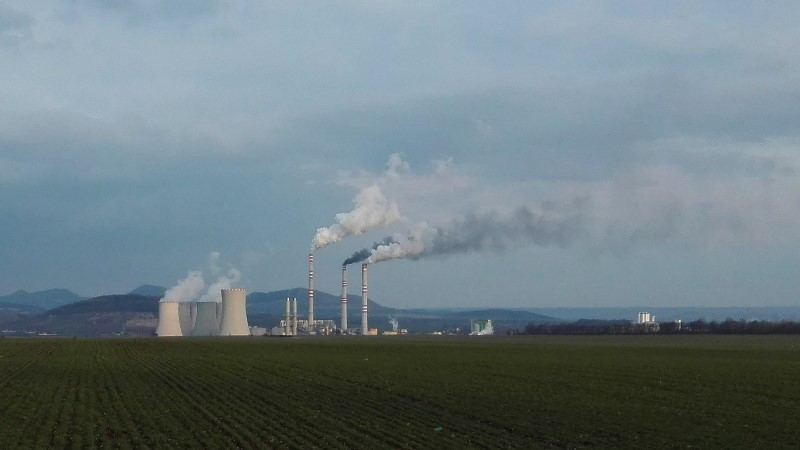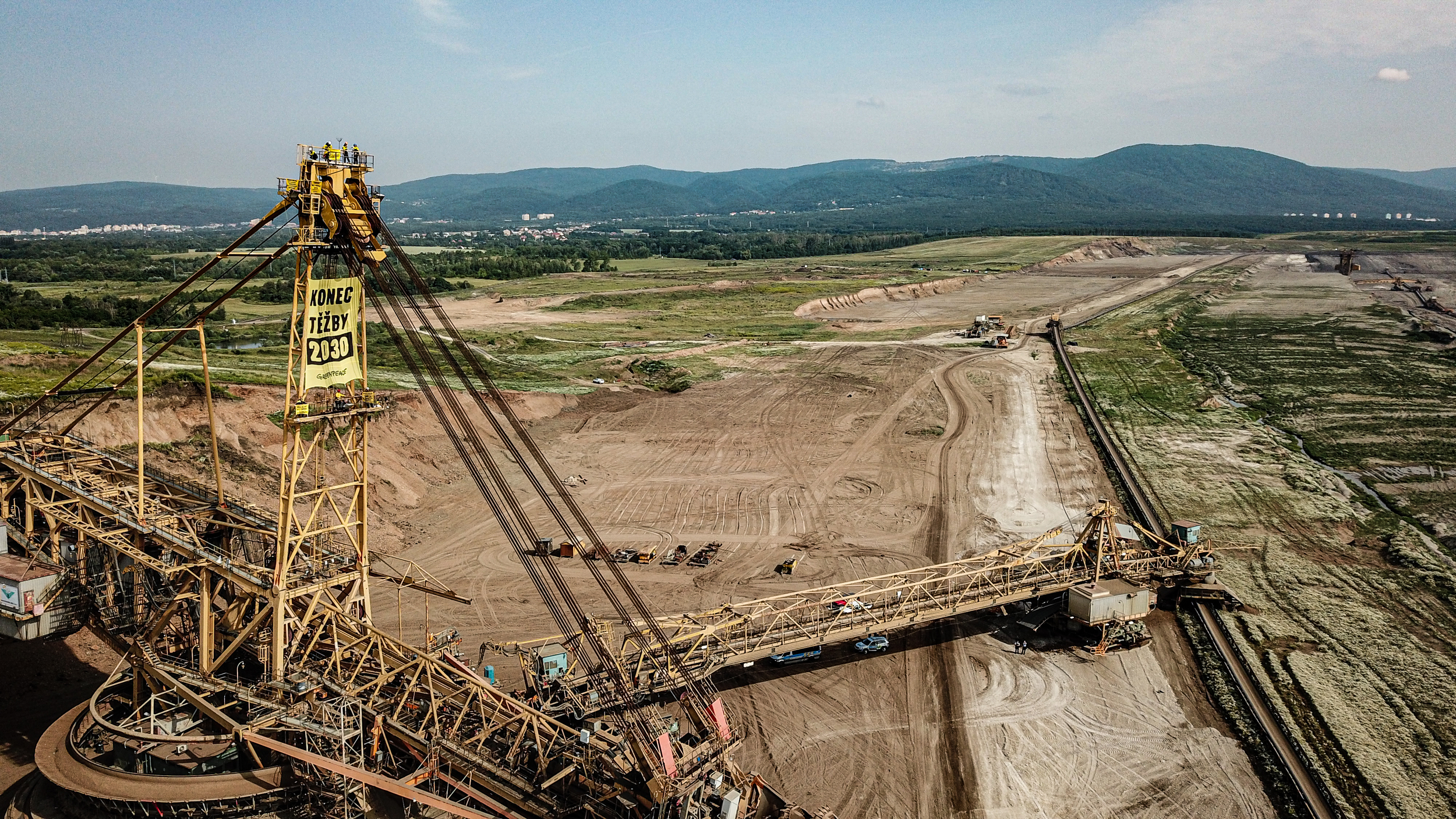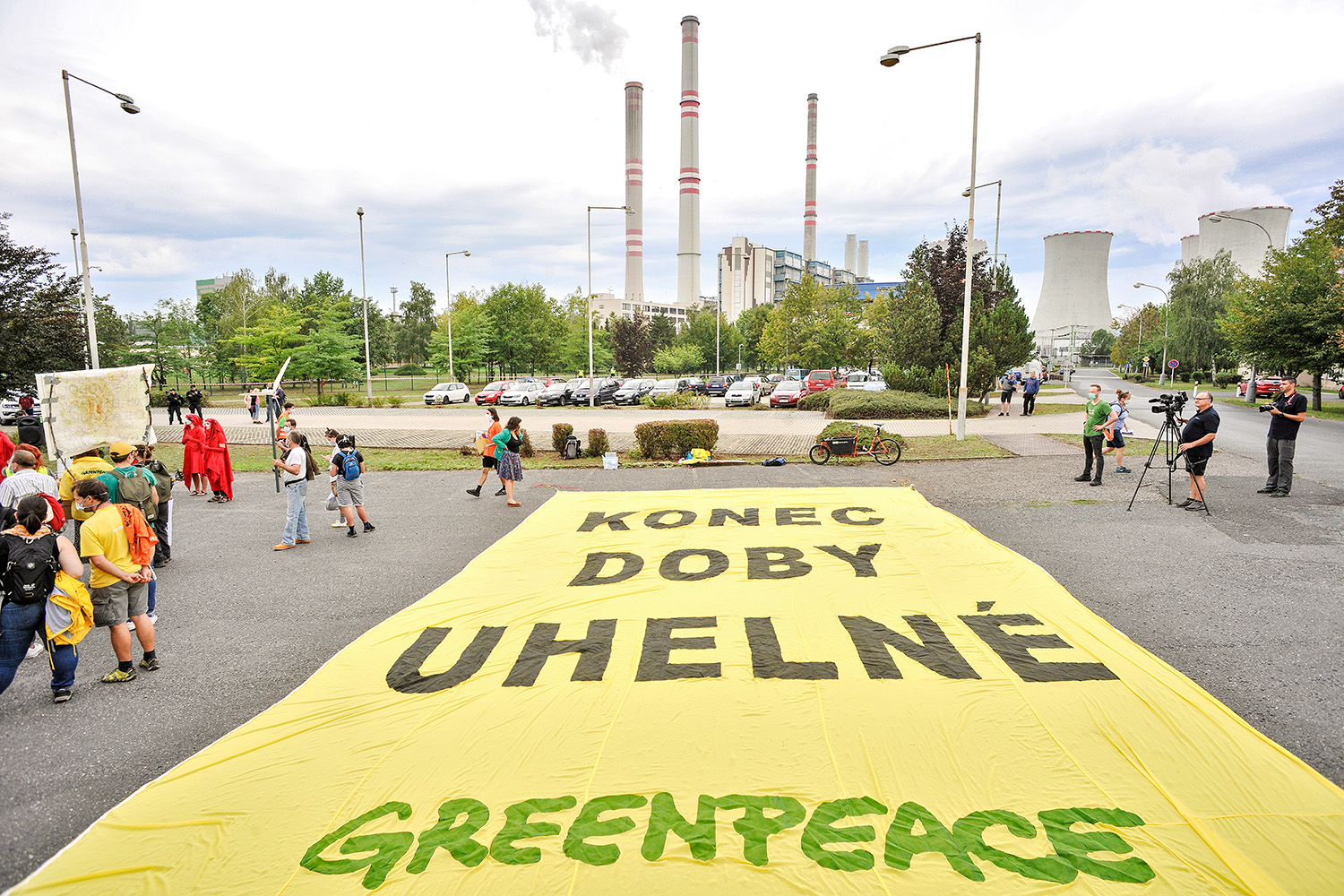Czech and German NGOs filed a complaint to the European Commision today, calling on it to initiate infringement proceedings against the Czech-Polish agreement concerning Poland’s Turów coal mine. The mine is draining nearby water supplies and damaging people’s houses as it operates in violation of EU law.

According to the complainants, the agreement ignores the environmental emergency that the Polish mine is causing on Czech territory, and the impacts it is having on Czech citizens. They also criticise the Czech government for agreeing to drop its lawsuit against Poland at the Court of Justice of the European Union (CJEU) in exchange for a one-off payment and the fact that it hasn’t yet filed another lawsuit against Poland over Turów.
The PGE-operated mine is wedged between communities in Czechia, Germany and Poland, and has already caused water levels in the region to fall more than twice the amount that its flawed Environmental Impact Assessment predicts dropping by 2044.
“We understand that Poland needs energy, but there are many ways this can be produced without denying our rights to water and damaging the environment. Water is a giver of life. Coal takes this away. That’s why we are asking the Commission to act now, before it is too late,“ said Milan Starec, member of local environmental group Sousedský spolek Uhelná.
“The Czech government very quickly and without transparency agreed to a deal with Poland that traded its citizens’ rights and the Czech environment for money. In the process, it also helped PGE get away with persistent violations of EU law at Turów. PGE and the Polish government still don’t understand that they need to respect EU law at Turów,” said Nikol Krejčová, campaigner at Greenpeace Czech Republic.
“The Czech government has agreed to an illegal situation on its own territory, and forfeited its ability to do anything about it. It tied its own hands behind its back. Now, the only authority that can ensure local people get justice is the European Commission,” said Petra Kalenská, lawyer at Frank Bold Society.
“Every day that Turów continues to operate, the situation for people in neighbouring communities gets worse. In towns like Zittau, people’s houses are being destabilised and the mine is causing cracks to appear in their walls. The European Commission shouldn’t be sitting by, allowing this situation to further deteriorate,” said Prof. Dr. Dr. Felix Ekardt, Chairman of the board of BUND Sachsen.



